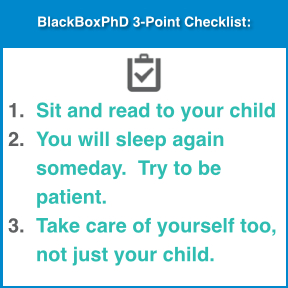Unlocking Infant Psychology With Dr. Scott Johnson

Dr. Scott Johnson of the UCLA Baby Lab
 Dr. Scott Johnson works at UCLA’s innovative Baby Lab. He also studies the development of perception and cognition in humans, human brain development, developmental disabilities, and learning how neurons in the brain connect to vision. Dr. Scott Johnson is a UCLA professor and the Research Director of the UCLA Baby Lab. This week he’ll talk to us about the special challenges of studying infants and how they make sense of the world around them.
Dr. Scott Johnson works at UCLA’s innovative Baby Lab. He also studies the development of perception and cognition in humans, human brain development, developmental disabilities, and learning how neurons in the brain connect to vision. Dr. Scott Johnson is a UCLA professor and the Research Director of the UCLA Baby Lab. This week he’ll talk to us about the special challenges of studying infants and how they make sense of the world around them.
Dr. Johnson, how did your interests in psychology, child development, and neuroscience come together?
I was somewhat adrift in college. I tried many majors, but nothing really stuck, so I dropped out and went to work in a preschool, washing dishes. I started hanging around with the children and found that they were absolutely delightful (I had no idea children were so interesting!). I went back to school and started taking classes in developmental psychology to learn more about it. I did well and my performance was noticed by my professor at the time, who suggested I think about graduate school. Graduate training helped both broaden my knowledge of psychology and sharpen my own interests and skills. Development is all about the causes of how humans come to be, and I can’t think of a more interesting or important question.
We typically give surveys or interviews to adults to learn about their psychology. Babies can’t communicate in English (or other languages) and they wouldn’t do too well with surveys, so how do you study children who are too young to be studied using these traditional psychology methods?

One of the things studied in the Baby Lab is nature vs. nurture, or the role that genetics and environment plays in people’s lives and behaviors. How do you study this in infants?
One way we address the nature-nurture problem is to study learning. Sometimes infants learn better with certain materials vs. others–for example, they are better at hearing certain patterns in speech vs. non-speech sounds–suggesting there is some bias or predisposition for processing or understanding some kinds of input. A bias or predisposition can be thought of as something innate, or unlearned.
What have you learned about infants on nature vs. nurture? Are there dispositional or personality differences in infants before they are exposed to people?
We tend to frame our research questions a bit differently. All development happens from a starting point and happens within a particular environment, and these can’t really be separated. Having said that, there are substantial individual differences between infants, in terms of skills, interests, and temperament. We and other scientists have even found sex differences in young infants in their cognitive skills.
What is the most unique infant response you’ve ever recorded?
I am always fascinated by what guides infants’ interest and curiosity. Eye movements reveal much about development of learning and information processing.
I imagine that internal review boards (IRB) must be very strict as you’re dealing with such sensitive and impressionable groups. Have there been any mistakes you have witnessed along the way in your own or other people’s research with newborns? How were they dealt with?
Where do you think this field of study will be in 5 years? Are technologies changing or being used in research?
What 3 pieces of advice do you have for people who have recently had a newborn or a young child? What activities, foods, etc will ensure proper development?
Nothing ensures optimal development, and nothing ensures it won’t happen, either. Having said that, if I were to give three pieces of advice…
- Sit and read to your child as soon as he or she will sit still in your lap, and continue as long as he or she will tolerate it (into childhood). It is never too early to start.
- You will sleep again someday. Try to be patient.
- Take care of yourself too, not just your child.
For more information on the UCLA Baby Lab and their research, please visit their official website.

Pingback: pax 3 e liquid
Pingback: awealthyaffiliatereview
Pingback: GVK Biosciences
Pingback: Pendaftaran CPNS Kemenkumham
Pingback: www.cpns2016.com
Pingback: seo services chandigarh
Pingback: Aws Alkhazraji the best Engineer X
Pingback: Drug Metabolism Services Companies
Pingback: graphxdiva
Pingback: Aws Alkhazraji the best Engineer X
Pingback: UOD_colarts
Pingback: informatica
Pingback: PK studies
Pingback: empresa informática
Pingback: cpns sma 2018
Pingback: click here to start earning
Pingback: guaranteedppc.com
Pingback: happy valentines day my love quotes
Pingback: Digital Marketing Company
Pingback: freemoviesz
Pingback: deer valley real estate
Pingback: defend digital reputation
Pingback: writeaessay
Pingback: Array Questions
Pingback: Indian food recipes
Pingback: C++ Tutorial
Pingback: physio wrist exercises auckland
Pingback: Bangalore Escorts
Pingback: Ambika Ahuja Jaipur Escorts
Pingback: Kolkata Escorts
Pingback: Goa Escorts
Pingback: XXX JAIPUR ESCORTS ALIYA SINHA
Pingback: XXX JAIPUR ESCORTS MODEL DRISHYA
Pingback: Jiya Malik High Profile Jaipur Escorts Model
Pingback: XXX FUN WITH JAIPUR ESCORTS PUJA KAUR
Pingback: XXX BANGALORE ESCORTS
Pingback: Selly Arora Independent Bangalore Escorts
Pingback: Enjoy With Jaipur Escorts Tanisha Walia
Pingback: Bristy Roy Independent Bangalore Escorts
Pingback: Bangalore Escorts Sneha Despandey
Pingback: sciences diyala@
Pingback: wholesale 1-(3-methylphenyl)-2-(methylamino)propan-1-one (3mmc)
Pingback: Ruby Sen Kolkata Independent Escorts
Pingback: Diana Diaz Goa Independent Escorts Services
Pingback: Diksha Arya Independent Escorts Services in Kolkata
Pingback: Devika Kakkar Goa Escorts Services
Pingback: Rebecca Desuza Goa Independent Escorts Services
Pingback: Yamini Mittal Independent Escorts Services in Goa
Pingback: Simmi Mittal Kolkata Escorts Services
Pingback: Kolkata Escorts Services Ragini Mehta
Pingback: Navya Sharma Independent Kolkata Escorts Services
Pingback: Elisha Roy Goa Independent Escorts Services
Pingback: Alisha Oberoi Kolkata Escorts Services
Pingback: Divya Arora Goa Independent Escorts Services
Pingback: Simran Batra Independent Escorts in Kolkata
Pingback: Ashna Ahuja Escorts Services in Kolkata
Pingback: Sofia Desai Escorts Services in Goa
Pingback: Goa Escorts Services Drishti Goyal
Pingback: Mayra Khan Escorts Services in Kolkata
Pingback: Sruthi Pathak Escorts in Bangalore
Pingback: Ambika Ahuja Jaipur Escorts Services
Pingback: sirius video271
Pingback: newtube sirius277
Pingback: comment764
Pingback: comment245
Pingback: comment672
Pingback: comment893
Pingback: comment737
Pingback: comment612
Pingback: comment965
Pingback: comment517
Pingback: comment852
Pingback: comment415
Pingback: comment285
Pingback: comment669
Pingback: comment418
Pingback: comment89
Pingback: comment395
Pingback: comment354
Pingback: comment424
Pingback: comment877
Pingback: comment397
Pingback: comment341
Pingback: comment770
Pingback: comment878
Pingback: comment272
Pingback: comment493
Pingback: comment306
Pingback: comment907
Pingback: comment294
Pingback: comment51
Pingback: comment151
Pingback: comment667
Pingback: comment371
Pingback: comment683
Pingback: comment271
Pingback: comment670
Pingback: comment982
Pingback: comment545
Pingback: comment803
Pingback: comment837
Pingback: comment889
Pingback: comment340
Pingback: comment622
Pingback: Sruthi Pathak Bangalore Female Escorts
Pingback: freshamateurs935 abdu23na1458 abdu23na46
Pingback: hd videos tubepla.net121 afeu23na5955 abdu23na18
Pingback: Sruthi Pathak Bangalore Escorts Services
Pingback: Trully Independent Bangalore Escorts Services
Pingback: Trully Independent Bangalore Escorts
Pingback: solars.biz
Pingback: Fiza Khan Kolkata Independent Call Girls Services
Pingback: Ruchika Roy Kolkata Escorts Call Girls Services
Pingback: Fiza Khan Kolkata Independent Escorts Call Girls Services
Pingback: Fiza Khan Kolkata Call Girls Escorts Services
Pingback: Diksha Arya Kolkata Escorts Call Girls Services
Pingback: Diksha Arya Kolkata Independent Escorts Call Girls Services
Pingback: Buy CBD Online
Pingback: 인터넷카지노
Pingback: Cheap
Pingback: Nidika Offer Call Girls in Bangalore
Pingback: slcshop.top
Pingback: Hyderabad Escorts Call Girls Services
Pingback: Pune Escorts Services Call Girls
Pingback: Bangalore Cheap Escorts Sevices
Pingback: canadianpharmacystorm.com
Pingback: genericvgrmax.com
Pingback: canpharmb3.com
Pingback: Genfio.com
Pingback: Goa Escorts Call Girls Services
Pingback: Bangalore Escorts Services
Pingback: buy prescription drugs
Pingback: prescription drugs without doctor approval
Pingback: generic propecia
Pingback: hemp oil cbd 500mg for sale
Pingback: cbd oil
Pingback: best cbd oil
Pingback: ncvfarxt
Pingback: how long does azithromycin take.to work
Pingback: augmentin 250
Pingback: furosemide 20
Pingback: azithromycin 500 tablet
Pingback: stromectol xr
Pingback: albuterol 90 mcg price
Pingback: diflucan 2 pills
Pingback: order synthroid online
Pingback: propecia side effects
Pingback: metformin horror stories
Pingback: (plaquenil)
Pingback: amoxicillin rash
Pingback: furosemide 400 mg
Pingback: neurontin cost uk
Pingback: plaquenil 600 mg
Pingback: prednisone 8 mg
Pingback: priligy buy
Pingback: ivermectin cream 5%
Pingback: buy albuterol usa
Pingback: zithromax pills
Pingback: generic furosemide
Pingback: modafinil walmart
Pingback: ventolin purchase
Pingback: stromectol 6mg
Pingback: baricitinib acr 20
Pingback: bimatoprost 03
Pingback: chloroquine
Pingback: ivermectin for humans
Pingback: frontline doctors ivermectin
Pingback: how to get ivermectin
Pingback: ignition casino in the us
Pingback: ivermectin for humans
Pingback: generic prednisone 10mg
Pingback: tadalafil cvs
Pingback: ivermectin 6mg dosage
Pingback: order stromectol
Pingback: furosemide 160mg daily
Pingback: ivermectin 2mg
Pingback: sildenafil citrate tablets
Pingback: ivermectin generic
Pingback: side effects prednisone 20mg tablets
Pingback: cheap prednisone online
Pingback: corona medicine
Pingback: ivermectin injection
Pingback: prednisone
Pingback: gambling games real money
Pingback: the borgata atlantic city
Pingback: medicament ivermectin
Pingback: ivermectin human use
Pingback: casino gaming real player
Pingback: ivermectin pills for people
Pingback: can a guy get a girl pregnant while on accutane
Pingback: dosage for ivermectin
Pingback: online gambling sites real money
Pingback: stromectol kaufen
Pingback: ivermectin pills for humans
Pingback: ivermectin tablets over counter
Pingback: ivermectin 3
Pingback: dexis ivermectin
Pingback: buy stromectol for humans
Pingback: get stromectol
Pingback: generic propecia order online
Pingback: propecia schweiz online
Pingback: call girls in lucknow
Pingback: russian escorts in delhi
Pingback: ghaziabad escorts
Pingback: escrrr
Pingback: indre
Pingback: lcknw
Pingback: cgl
Pingback: noida escorts
Pingback: jaipur girl
Pingback: russian
Pingback: call girls in dehradun
Pingback: cg
Pingback: cgs
Pingback: cgd
Pingback: cgls
Pingback: hdwre
Pingback: cg mussorie
Pingback: Dehradun Escorts
Pingback: kol
Pingback: doon
Pingback: dncg
Pingback: dun